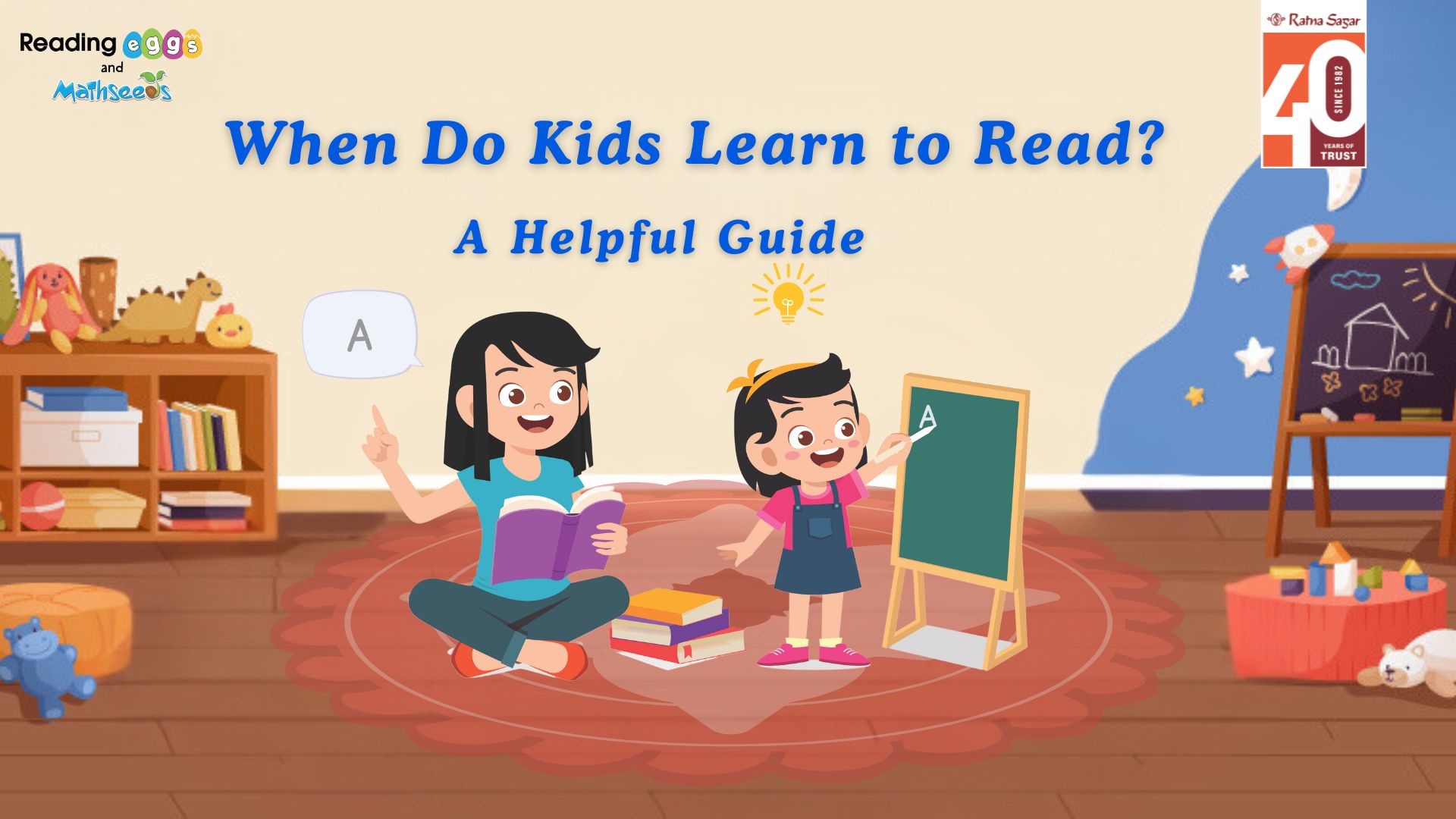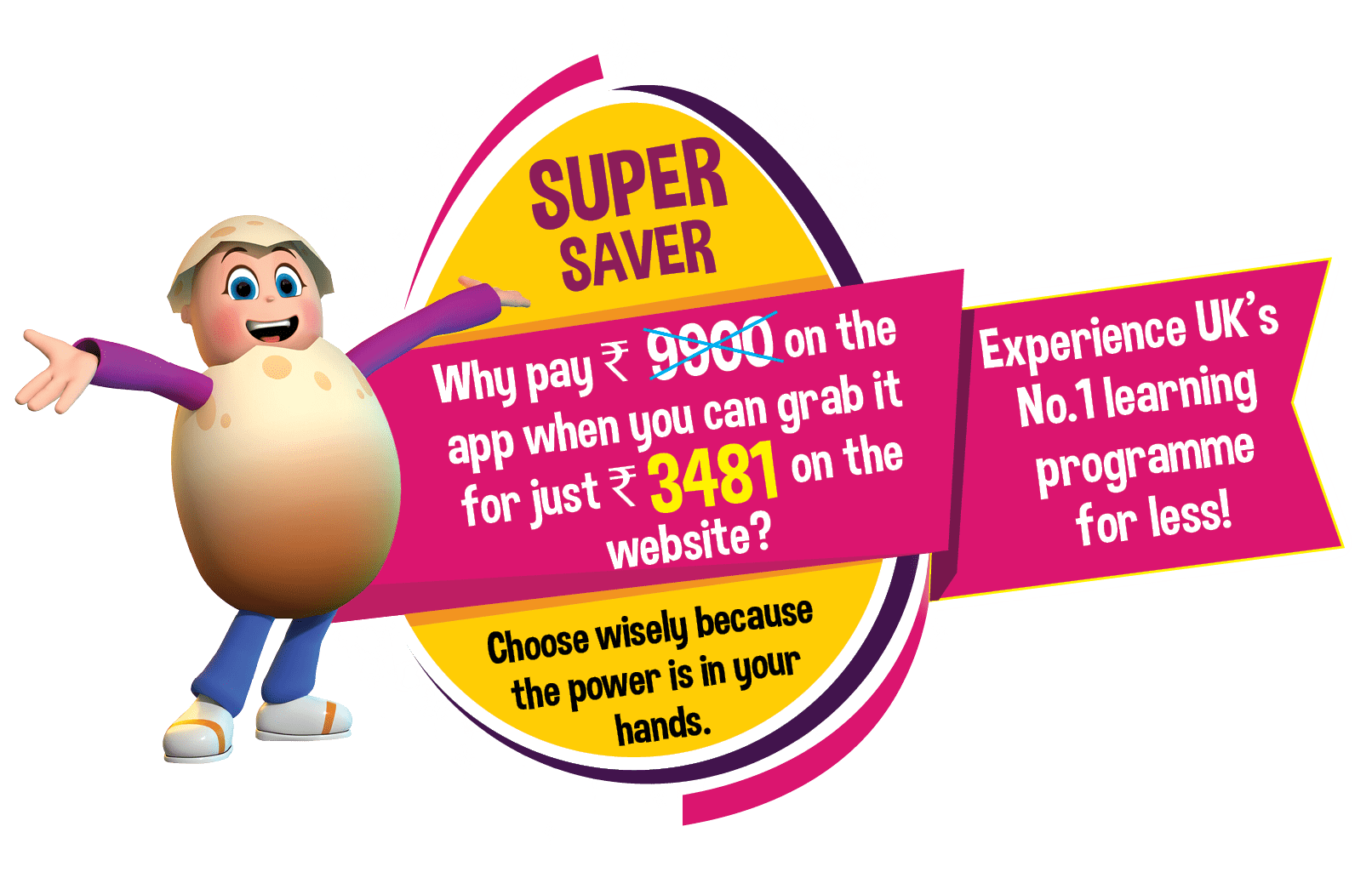
Reading is a fundamental skill that opens doors to a world of knowledge and imagination. As parents and educators, one of the most common questions we ask is: when do kids learn to read? Understanding the timeline for developing literacy skills can help you provide the right support and encouragement for your child.
The Timeline of Learning to Read
Typically, kids learn to read between the ages of 4 and 7. However, it’s important to note that every child is different and there is a wide range of what’s considered “normal.” Some children may start recognising letters and words earlier, while others might need more time to develop their literacy skills. Here’s a general breakdown of how reading typically develops:
Ages 0-3
Babies and toddlers are exposed to language through sounds, songs and books with large pictures and simple words. This stage is crucial for building the foundation for reading. Even though children this age aren’t reading yet, listening to stories helps them develop a love for books.
Ages 3-4
Preschoolers start to recognise letters and some may begin to associate letters with sounds. They also develop print awareness, meaning they understand that words on a page represent spoken language. This is an ideal time to introduce books with repetitive phrases or rhymes.
Ages 5-7
In kindergarten and early elementary school, most kids learn to read. They start by mastering letter sounds, recognising high-frequency sight words and gradually putting together simple sentences. This is also when children’s reading comprehension begins to grow as they become more familiar with text structure.
Book 14 days FREE trial For UKG Maths Worksheet
Signs Your Child is Ready to Read
There are several signs that your child is ready to dive into reading. Watch for the following behaviours that indicate they’re prepared to move beyond listening to stories and start reading them:
- Recognising letters and associating them with sounds.
- Showing interest in books and asking questions about the text or pictures.
- Trying to read simple words on their own, such as signs or labels.
- Memorising favourite books and attempting to “read” them aloud from memory.
How to Support Your Child’s Reading Journey?
To ensure your child becomes a confident reader, you can:
- Read together daily and ask questions about the story.
- Introduce phonics and letter sounds through games and activities.
- Encourage kid’s reading practice with age-appropriate books and interactive tools.
One excellent way to support your child’s learning is through programs like Reading Eggs and Mathseeds. Reading Eggs is designed to help kids learn to read by making reading fun and interactive. Through engaging lessons, games, and rewards, it nurtures a love of reading while teaching essential skills. Check out a complete guide for preschool reading.
Reading Eggs and Mathseeds focuses on a number of important concepts for achieving successful reading:
Phonemic Awareness
The programme instils in children the ability to hear and manipulate different sounds within words. Early lessons focus on rhyme recognition, matching letters and sounds, and understanding the dynamics of sounds in forming words.
Book 14 days FREE trial For UKG Maths Worksheet
Phonics
Recognizing the connection between letters and their corresponding sounds is a fundamental skill emphasised throughout Reading Eggs and Mathseeds. Children learn to decode words into sounds and encode sounds into words through engaging activities resembling games. Each lesson concludes with a book tailored to the child’s current abilities, fostering the joy of independent reading. Do sight words make reading easy? Find out here.
Vocabulary
Understanding word meanings, definitions, and contextual usage is vital for academic success. Reading Eggs and Mathseeds introduces new words throughout its lessons, supported by visual aids to enhance context and retention.
Reading Comprehension
Great readers immerse themselves in stories, visualising characters, contemplating events, and sharing the emotional journey of the characters. Reading Eggs and Mathseeds employs activities that scaffold a child’s understanding, progressing from pre-reading exercises to stimulate critical thinking. The programme guides children from learning words and their meanings to reading for comprehension, transitioning from learning to read to reading to learn.
Fluency
Reading fluency, encompassing speed, accuracy, and comprehension in reading aloud, is cultivated through various skills. Reading Eggs and Mathseeds recognizes the importance of good phonic decoding skills, a growing bank of high-frequency words recognized at sight, and the time children spend reading books at an appropriate level. The programme provides instructional activities that build children’s reading stamina, making reading a skill that develops with time, effort, and regular practice. Reading Eggs and Mathseeds offers a comprehensive journey from non-reader to proficient reader, empowering children to become lifelong readers and learners. But, that’s not all. Reading Eggs and Mathseeds employs colourful animations, lively characters, songs, and rewards to maintain children’s motivation, ensuring an entirely interactive experience that keeps them focused. Check out the benefits of reading.
Conclusion
There’s no one-size-fits-all answer to when do kids learn to read. The journey to literacy begins long before a child actually starts reading and every child progresses at their own pace. By offering engaging materials, consistent reading practice and plenty of encouragement, you can help your child develop the skills they need to become a confident reader. Remember, the goal is to foster a lifelong love of reading, not just to reach milestones.

